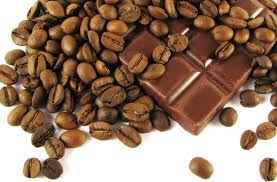Caffeine and Menopause
My clients usually gasp in horror when I mention that caffeine must be avoided. Coffee is a stimulant, and most of the negative effects of caffeine are caused by over-stimulation of our nervous system, digestive system, cardiovascular system and respiratory system.
For example, excessive caffeine will induce unnecessary nervousness, irritability and even insomnia. Caffeine also raises blood pressure and can increase the chance of heart rhythm disturbances, known as palpitations (a strange, fast heart beat you may feel once in a while; this is common in menopause). Caffeine also makes you sweat and will exacerbate hot flashes.
So, how much coffee can you have? Here’s the short answer: if you are suffering from constant hot flashes and insomnia, any amount is too much. If you can get your symptoms back under control, only then can you re-introduce small amounts of caffeine to see how your body reacts. One cup per day is usually fine for most people, but I still encourage making the switch to anti-oxidant-rich green tea.
Spicy Foods
This one is really a no-brainer. Spicy foods make you sweat; they increase your body temperature and can increase vasodilation (or flushing). Sound familiar, hot flash sufferers? So if you want to reduce your hot flashes, it’s time to give up the spice in your favourite dishes. Cayenne, chilies, wasabe, and hot mustard are just a few common spices to avoid.
Healthy Fats for Menopause
It’s true that saturated fats are “bad” fats, and we should ingest them sparingly, but it is even more important to avoid trans-fats. Trans-fats are hidden in many foods and are most commonly found in cookies, crackers, candies, baked goods, margarines and any food product that is able to sit on the grocery store shelf for weeks on end and still remain soft and chewy. Studies have shown that trans-fats contribute to oxidative stress, which can leave you more susceptible to cardiovascular disease, cancer and many other health problems common in menopause.
Tip: Become a “label-looker”
Read labels carefully and eliminate foods containing hydrogenated fats, partially hydrogenated fats and vegetable oil shortening. When it comes to eating saturated fats, consume animal fats sparingly and opt for lean meat choices and fish.
Alcohol
Here’s another confusing food item: is it good or bad for us? Let common sense be your guide. If you enjoy the occasional drink, one glass of wine per day is absolutely fine. If you’re not a regular drinker, then you can simply stay away from it. For drinkers who suffer from hot flashes and insomnia due to menopause, then it may be best to give it up to get your symptoms under control. Binge drinking is a definite no-no. In my opinion, the all-mighty hangover is nature’s way of saying “You won’t be trying that again will you!” So let’s just listen to what our bodies are saying and keep the drinking to a minimum.
Processed Foods
Simply put, foods that contain white flour and/or white sugar or meals with refined pastas and white rice should be avoided. Sounds simple right? It’s not! If you look at any food that comes in a box, it no doubt contains wheat or white sugar. It has been well documented that highly processed foods like white flours and sugars and other refined carbohydrates will affect our bodies by doing more damage than just increasing hot flashes.
Consider this evidence:
- They spike our insulin levels which lead to fat storage and obesity not to mention diabetes and cancer! (International Journal of Cancer 2005; 114(4), 653-8).
- They are devoid of any nutritional value (nothing but empty calories!).
- They typically contain artificial colours, preservatives and strange flavouring agents.
- They promote inflammation in the body which could contribute to joint pain.
- They are stripped of the natural fibers and increase the likelihood of constipation.
To avoid these issues, enjoy more fruits and vegetables, whole grain options, beans/legumes, nuts, seeds and choose lean meat options and fish. Try to cook great tasting vegetarian meals three times per week (try tofu!). Your symptoms, and your family’s health, with be better off because of it.
Drew Nesbitt BA, TCMP, Ac., ROHP is a Practitioner of Traditional Chinese Medicine and Acupuncture as well as a Registered Orthomolecular Health Practitioner who specializes in all gynecological issues including menopause. For more information about Drew and his clinic location in Toronto, ON, click here. Get control over your menopause today!




If you know of other foods that should be on this list…feel free to share!
For my Toronto clinic location on the Danforth, click “contact” at the top of the page.
Have a great day!
Drew